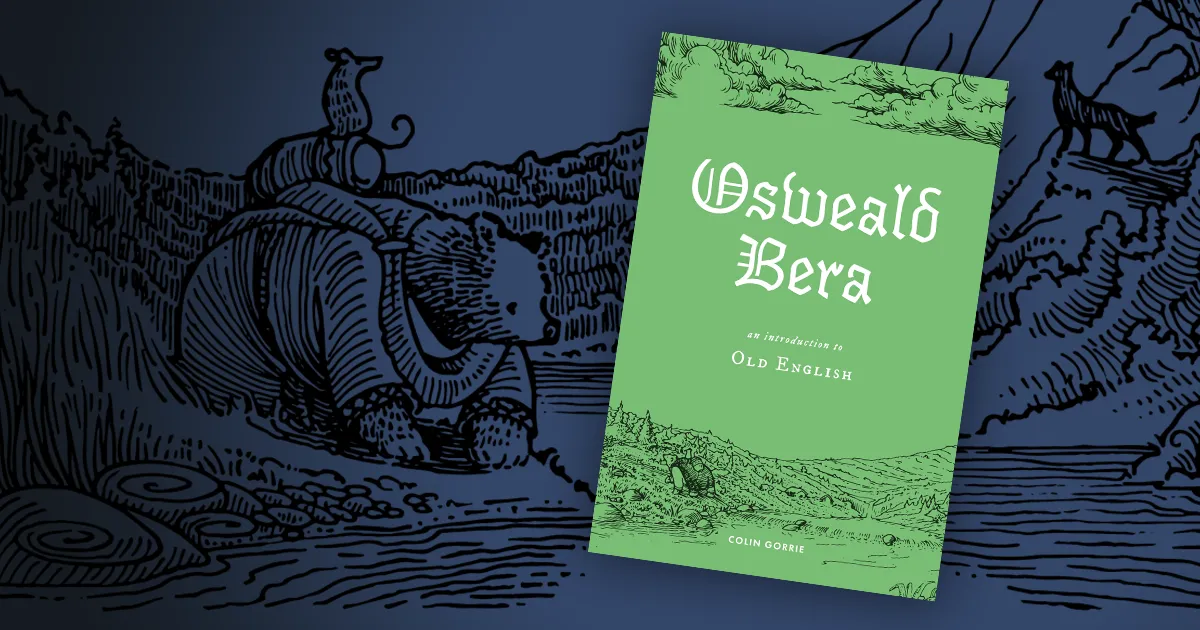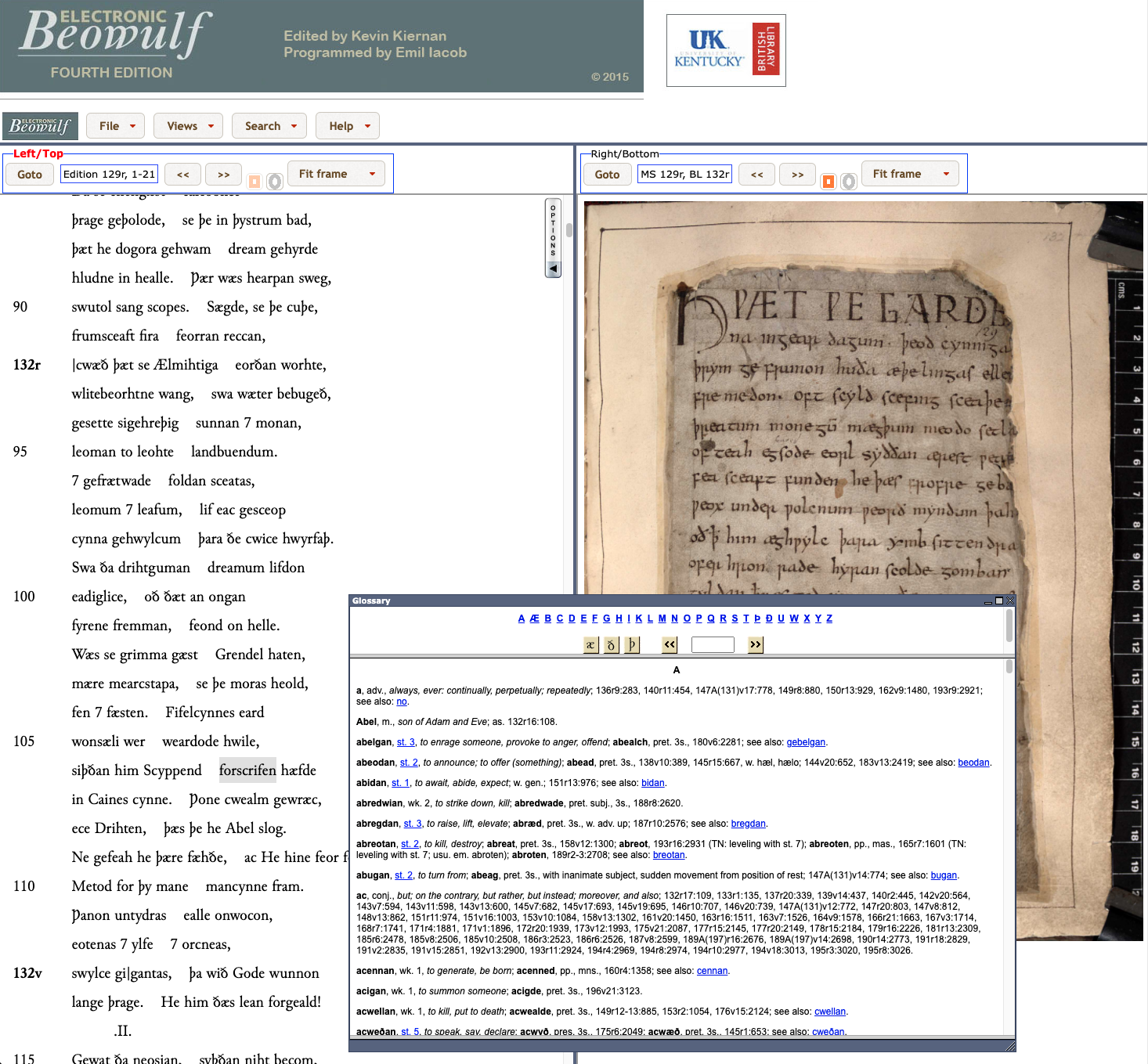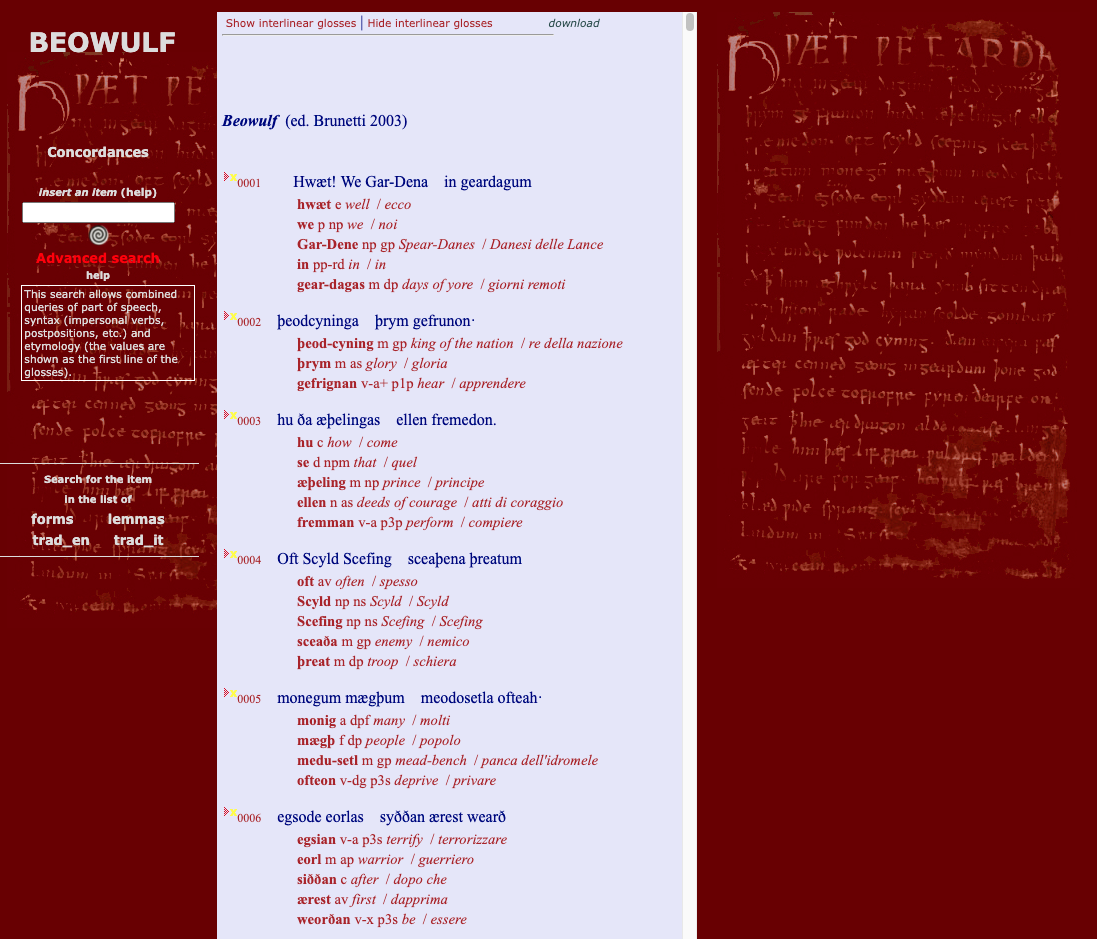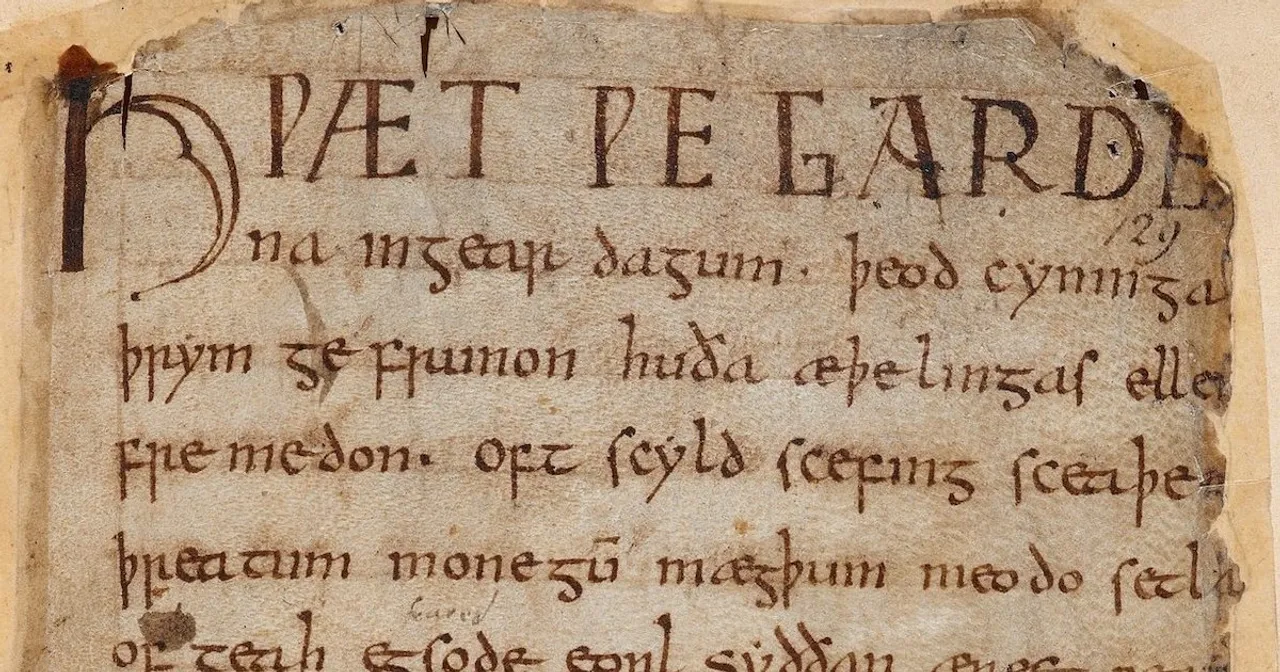
Dead Language Society. A weekly newsletter on the hidden history of English. Join 37,000+ readers.
Subscribe on Substack →If you want to learn Old English with me or with another teacher using my methods, you can do so with the Ancient Language Institute.
Here is a list of all the free resources I've found helpful or had recommended to me. If you have something to recommend, please send me a message on Twitter.
Textbooks & Courses
- Ōsweald Bera. Forgive the self-promotion, but I wrote this book. It teaches the language using stories and was written with the intention of providing a modern, effective, and enjoyable method for learning Old English.
- King Alfred's Grammar. This is an introductory Old English textbook by Michael C. Drout. It was later revised and published as Drout's Quick and Easy Old English but you can read the entire earlier version online for free. It follows a traditional grammar-translation method, and includes grammatical explanations, vocabulary lists, exercises (with answers), and reading passages.
- Old English Online is an introductory digital Old English textbook written by a team led by Victoria Koivisto-Kokko and Tom Birkett. It includes well-written grammar notes, passages for reading (with translation), and exercises (with answers).
- Old English Aerobics is not really a textbook itself, but rather a companion site to Peter S. Baker's textbook Introduction to Old English. But you don't need the textbook to make good use of this site: it contains grammatical exercises as well as lots of texts for reading. And better yet, the texts are all glossed to varying degrees, so you can get help with unfamiliar vocabulary and grammatical constructions.
- Essentials of Old English. This is a free digital textbook written by Jeremy J. Smith. It is a fairly "heavy" textbook in the sense that it does not shy away from grammatical terminology, even in the beginning. It includes self-correcting exercises as well as a glossary. If you are using it for self-study, a suggested sequence is given by the author here.
- Old English Online is a digital textbook offered by UT Austin's Linguistics Research Center. It is organized around a sequence of readings, accompanied by extensive grammatical notes. It is a great resource but it does not take you by the hand at all: for this reason I recommend it mainly for experienced learners of historical languages.
Morphology
- The Magic Sheet of Old English Inflections (Letter/A4). This is a single-page cheat sheet of Old English morphology. It's handy to print out and stick on your wall for reference while you're reading, at least until you've fully internalized all the forms. It comes courtesy of the Old English Aerobics site by Peter S. Baker.
Syntax
- Old English Syntax. This is a handout from the course "History and Structure of the English Language I" taught at the University of Toronto.1 It covers, in very abbreviated form, many points about the syntactic structure of Old English. But, be warned, you will probably need some linguistic training to decode these notes.
Vocabulary
- Old English word frequency resources by /u/Deadlyheimlich. This Reddit thread has some good discussion of the state of the art with respect to Old English word frequency lists, as well as links to attempts at creating frequency lists for the Old English poetic and prose corpus. These are probably the best resources we have so far for looking at Old English word frequency.
- Circolwyde Wordhord (by Carl T. Berkhout) is a glossary of modern2 computer terminology in Old English, in case you want to talk about websites in Old English.
- Old English Core Vocabulary by Christine Rauer. This is a list of 500 words that are either especially common or particularly important to a key text. Modern-language cognates are given to ease memorization. For students who know these five hundred words by heart, trips to the dictionary when reading would be relatively infrequent. This makes reading more pleasant, which means you're likely to do more of it, which means you'll learn faster. So if you have the time and inclination to memorize a word list, this is a good one to start with, as is the following one.
- Old English Aerobics Word Frequency List (Letter/A4). A vocabulary list ordered by frequency of all words that occur 10 or more times within the Old English Aerobics corpus. Since the frequency list is specific to this rather small corpus (32000 words), this frequency list should not be used for research purposes. It is, however, useful for learners as a baseline vocabulary list to ease reading (like the Old English Core Vocabulary list above). Unfortunately the wordlist is stuck inside a PDF, which makes getting the text out and into, say, a spaced-repetition system, rather inconvenient.
Dictionaries
The easiest dictionary to use for the student is Sweet's dictionary (digitized here). Read on for more details:
- How to Use Old English Dictionaries: A Guide for the Mildly Perplexed by Rachel Fletcher. This superb blog post teaches you how to use Old English dictionaries, from choosing the right dictionary to strategies for finding the word you want,3 to interpreting the results you get. Don't use a dictionary before reading this post! See also the follow-up post.
- Bosworth-Toller Dictionary. The classic Bosworth-Toller dictionary of Old English presented online in a beautiful and easy-to-use interface. Note: read the How to Use Old English Dictionaries blog post before attempting to look things up in Bosworth-Toller.
- Old English Aerobics Glossary. A good mini-dictionary for all the words in the Old English Aerobics corpus, with links to where each word appears in context. Covers approximately 4600 unique words.
- Two 19th century dictionaries available on the Internet Archive: A Handy Anglo-Saxon Dictionary (Harrison and Baskervill 1885) and The Student's Dictionary of Anglo-Saxon (Sweet 1896). Thanks to @ksymil on Twitter for the recommendation.
- Update: Sweet's dictionary has been digitized – a Herculean effort! – by Mike Pope: Henry Sweet's A Student's Dictionary of Anglo-Saxon (1896)
Thesaurus
- A Thesaurus of Old English. A thematically organized thesaurus of Old English vocabulary. Note that many of the synonyms are used exclusively in poetry – this is not marked in the thesaurus. Thanks to @ksymil on Twitter for the recommendation.
Texts
Readers
- Sweet's An Anglo-Saxon Reader in Prose and Verse. A 19th-century graded reader of Old English. It does not give as much help as 20th-century graded readers might, but it is a good place to get level-appropriate readings. It also contains a short student's grammar of Old English which is a handy reference.
- Bright's An Anglo-Saxon Reader. Bright's reader is very much like Sweet's, to the degree that the similarities raised some eyebrows on its release.4 It can be used in much the same way as Sweet's reader. There is overlap in the texts covered, but not complete overlap.
Beowulf
-
Electronic Beowulf at the University of Kentucky. This is the full text of Beowulf in Old English, side-by-side with the manuscript page. It also has an integrated glossary. This is a truly amazing resource! The only downside is that the user interface is showing its age, and some of the controls were a little fiddly. I also had to open it in incognito mode in order for it to work, so ad-blockers and other quality-of-life tools for the modern web may interfere with its functionality. Nevertheless, it is highly recommended!

Electronic Beowulf -
Trilingual Beowulf. The complete text of Beowulf along with interlinear glosses. A monumental achievement! Available in Italian as well as Present-Day English.

Trilingual Beowulf
-
Beowulf and the Fight at Finnsburg (Clark Hall translation). This is a public domain translation of Beowulf into Present-Day English prose. Here is a sample of the style:
LO! We have heard of the glory of the Spear-Danes' warrior-kings in days of yore, —how the princes did valorous deeds! Often Scyld of the Sheaf took mead-benches away from troops of foes, from many tribes. The noble inspired awe from the time that he was first found helpless; for that he met with consolation, increased under the heavens and throve in honours, until each one of those who sojourned near, across the whale's road, had to serve him, and to pay him tribute. A noble king was he!
-
Beowulf at Old English Aerobics. Here Beowulf is given the Old English Aerobics treatment of glossing and grammatical aid. As of October 2021, this is still a work in progress.
Footnotes
-
My alma mater! ↩
-
Since the list has an entry for write-protect notch (gewritwearnhol, if you're curious), something I haven't seen since N*Sync was on the charts, we can date "modern" to the late 1990s. ↩
-
Looking up a word you find in a text in an Old English dictionary is not always a straightforward task. Word inflection and spelling variation mean that you often have to normalize the word before attempting to find it. ↩
-
As Wikipedia has it, the book's "similarity to the reader published by the more well-known British philologist Henry Sweet prompted Sweet to remark that Bright's work 'bears a striking resemblance to an earlier version of my Reader.'". ↩
